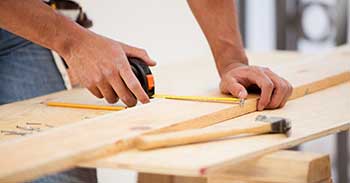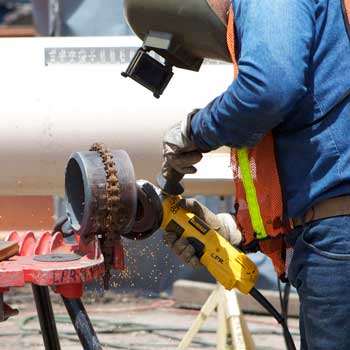Menu

No one wants to be average. No one strives to be the ‘World’s Most OK Student’ or to choose a career that is moderately exciting with moderate pay that would provide moderate happiness.
Why would you?
With so many exciting careers and opportunities at your disposal, you shouldn’t strive for average.
As the skills gap continues to deepen in America and career opportunities grow, it has become increasingly important to show students and young adults the benefits of a career in construction. The effort to recruit, train and retain individuals to the industry is often hurt by outdated terms and assumptions about construction.
To dispel these assumptions, let’s walk through why careers in construction aren’t blue collar or middle skills – as they are so commonly called.
As stated, ‘Blue Collar’ work is portrayed as a career that requires no education or skills. But this couldn’t be further from the truth!
This assumption stems from the fact that most skilled craft professionals do not need a college degree to work in their craft. By bypassing a college education, there is an assumption that they are uneducated or unskilled. The stigma around individuals who do not go to college is harsh. People assume they are working dead-end jobs, living paycheck to paycheck or working in an industry that doesn’t require expertise and knowledge. Those in the construction industry know this stereotype isn’t true.
For an individual to become fully trained as a construction craft professional, they must go through eight to 12 years of training.
This training is often completed through apprenticeship programs, where students learn through hands on training and real-life experience. In an apprenticeship, students start earning a wage as they get their education while getting a head start in their career.
Blue collar is also an outdated title that represents an outdated view of the industry.
In fact, careers in the crafts have been publicly called ‘blue collar’ as early as 1924! Used to describe the darker colors tradesmen wore in contrast with the popular term ‘white collar,’ the name became a symbol of the working class. But while some still embrace the term, it can also be used to frame the construction career path as less desirable and less dignified than other options.
With all of the growth and innovation in construction since the 1920s, it’s time to rebrand.
After all, funding for U.S.-based construction technologies increased by 324% in 2018. Job sites are also safer than ever before, and construction projects are taking steps to become more environmentally friendly and sustainable. The values of hard work and craftsmanship still remain, but many of the negative stereotypes are no longer valid.
As the industry continues to become more advanced and sophisticated, it establishes itself as an industry of choice. This shift needs to be reflected in the way the industry is talked about. Working in construction is no longer a blue collar job, but a career in the skilled crafts.

Though careers in construction have been traditionally called middle skill jobs, this description ignores the level of expertise and training that goes into a craft career. With classes, credentials, apprenticeships and assessments – skilled craft professionals do not fit the mold for having just middle skills.
These individuals have spent years learning and perfecting their trades. Stating that they have middle skills is understating their talents.
Middle skills careers also carry the implication that they will leave you stuck in the middle. This also isn’t true. With skilled craft careers in high demand, they are offering high salaries for professionals who possess the knowledge and skills required to be successful in their craft.
When you pair high salaries with little to no debt, skilled craft professionals are getting a head start in their careers and making a livable wage sooner than college-attending students. With opportunity for career advancement and increasing salaries, craft professionals are set to enjoy financial security and a comfortable lifestyle.
Construction careers are so much more than middle-skill or blue-collar jobs. They are lifelong careers in skilled craft positions that require expertise, knowledge and high levels of skill.
Want in? Find your career path today.